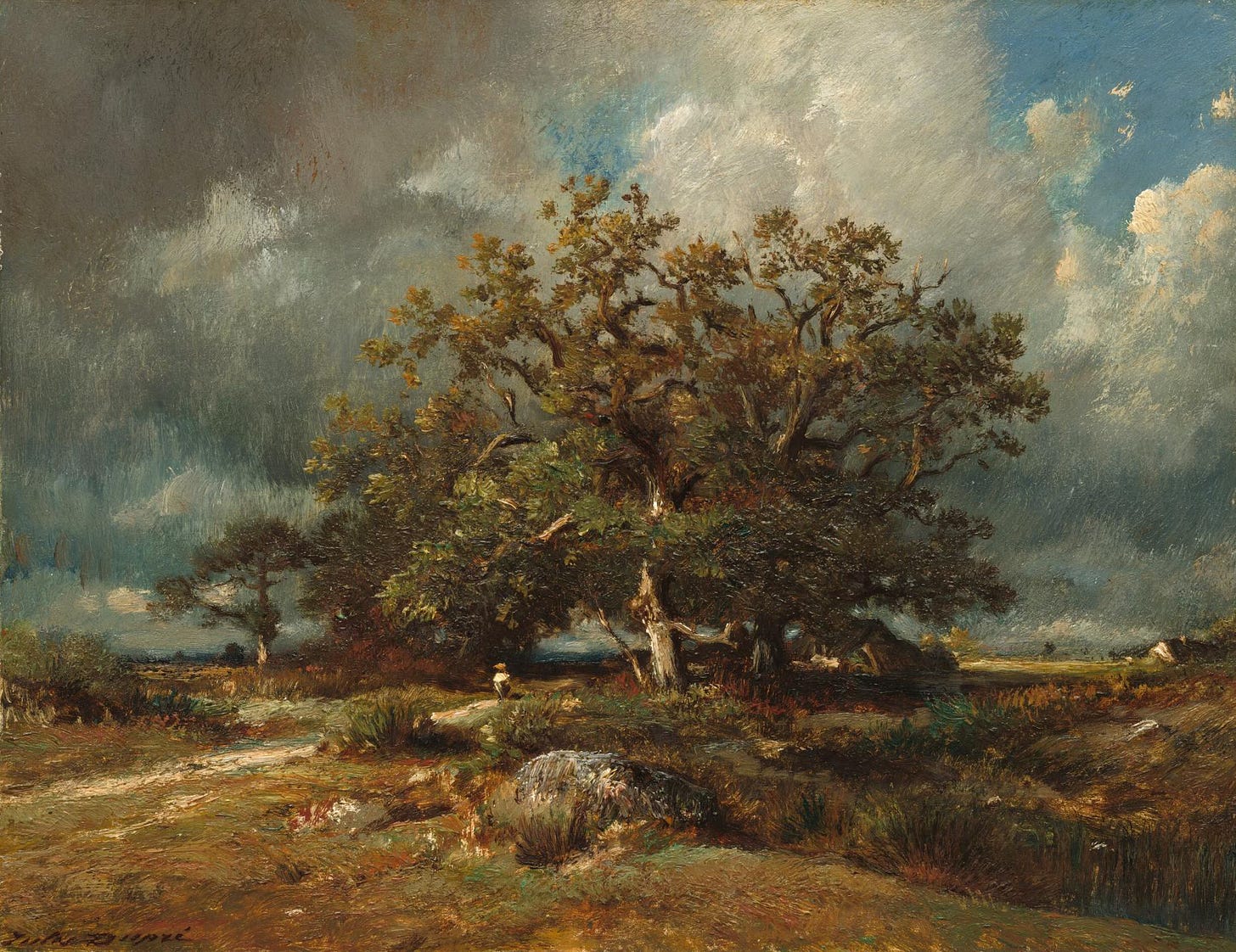The Seed and the Embryo
Dissecting a common pro-choice analogy
Those familiar with the abortion debate will have heard a pro-choicer use the seed analogy to advance his position. The analogy is deployed by first describing the relationship between a seed and a tree; they are distinct insofar as the seed is not the tree, and connected since the seed can become a tree. The human embryo, then, is said to be like the seed here, and the tree akin to a further developed human being. The pro-choicer concludes that because we tend to find greater importance in the tree, there is no reason to give the embryo the same moral considerations as the further developed human being.
The argument's conclusion obviously does not map onto our understanding of humanity; one is expected to give moral consideration in accord with how developed a human is. Even the most seasoned pro-choicer couldn't possibly affirm the validity of this principle. If one were asked, for example, who is more deserving of life between a one-year-old and a ten-year-old, it would be universally unacceptable to argue that the ten-year-old is more deserving of moral consideration because he is more developed.
The pro-choicer might endeavor to avoid this issue by claiming that the analogy is not about appealing to an abstract notion of development, but rather to elucidate a specific characteristic of a human that, when actually present, endows one with moral consideration. However, it is hard to see how this analogy evinces such a truth; there is nothing in its presentation that explains what quality of the tree is indicative of greater importance than the seed. Moreover, the thrust of the argument is driven by a comparison of developmental progress, not the merit of a specific trait. If a pro-choicer desires to argue that moral consideration of human beings is based on an actually present trait, he is welcome to do so, but it is not fitting to use the analogy as presented.
Then there is the issue of the substantial difference between the nature of a tree and a human. The pro-choicer is expecting us to derive the moral weight of a human, who can possess moral weight (I say always does), from a being that can never have moral weight, a tree. But that is not the proper use of the analogy; one cannot derive whether a being has a particular quality through an analogy with a being that will never possess that quality. This is not to say that one cannot learn something about humans by understanding trees, but only insofar as their similarities in nature allow. We can, for example, learn about what it means to grow by relating a tree and a human, but we can't come to understand what it means to conceptualize through this relation—trees don't think.
Until now, we have assumed a seamless association between concepts of importance and moral consideration. However, this was only done to maintain the integrity of the ambiguous and incorrect approach that pro-choicers typically adopt when arguing with this analogy. There is no necessary relation between importance, usually defined with respect to a value system, and what is moral. The phenomenon of preferring the tree over the seed seems better explained by our natural inclination for the perfect; the tree is a more complete instantiation of its organism than the seed.
The sentiments expressed should not discourage the use of natural analogies. They are reliable tools that provide an understanding of how reality is organized. In this one, both the unborn baby and the seed are life forms in their earliest stages, requiring nourishment to develop into their final forms—that's a legitimate similarity to derive knowledge from. To avoid erroneous conclusions, one must abstract with respect to the nature of the organisms in question, not drawing relations where there is no likeness. Generally, that encapsulates the error the pro-choicer makes with this analogy.



> “there is nothing in its presentation that explains what quality of the tree is indicative of greater importance than the seed.”
But we can give such an account in the case of an early fetus and a 20-ish-week fetus: the former lacks a brain with enough functional unity to sustain conscious experience, while the latter doesn’t!
Why are brains with enough functional unity to sustain conscious experience the proper unit of moral concern?
Consider: I transplant your brain into a twin copy of your body. I destroy your original body. What is our diagnosis of this case? It seems like you have survived, just with a new body.
But this is inconsistent with the view that the proper unit of moral concern is the human organism. If you were your original organism, then you would have died when your brain was transplanted. But clearly you survived! Or at least, all the morally relevant parts of you survived. So I say, the morally relevant distinction between beings like us (infants, adults, the elderly) and fetuses is that we possess minds.